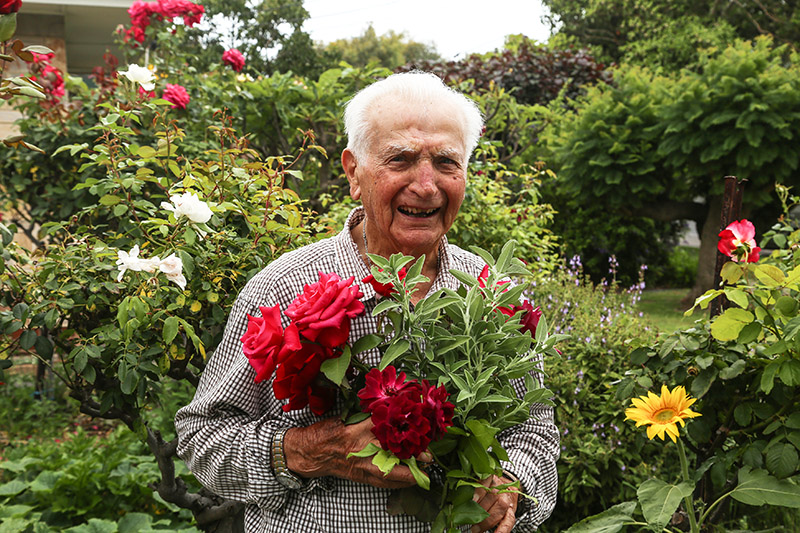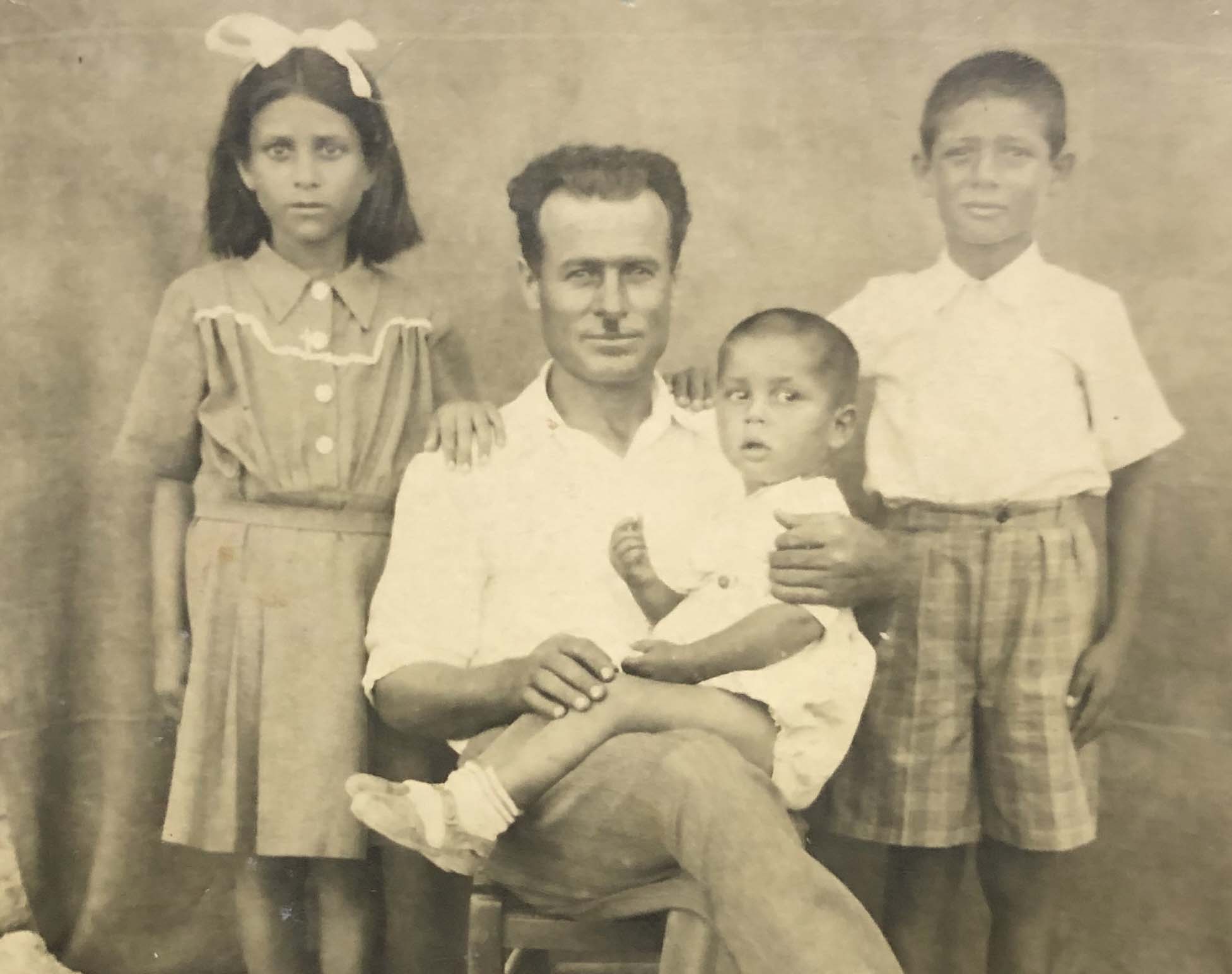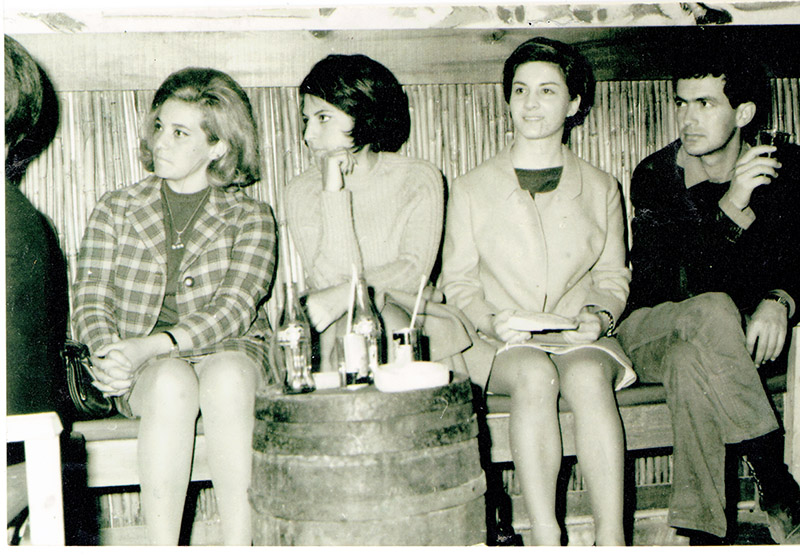‘At the age of 103, he believes he will go home to Morphou within his lifetime.’ ALIX NORMAN discovers heart-breaking interviews with elderly members of the Cypriot diaspora
“Here we are, staring down the barrel of 50 years. How do we face it?
“We’re not in Cyprus; we’re half a world away. And even if we were on the island, many of us would be unable to be in our own, ancestral homes. It’s a bleak anniversary for us.”
Kay Pavlou is talking, of course, of the half century since 1974 – the invasion that left many homeless, and forced thousands to flee the country.
A filmmaker, she was born and raised in Adelaide; like so many others, a product of her parents’ search for a better life. But though Kay is “Australian by nationality, I’m still Cypriot. And the invasion and occupation remain strong in my mind.
“For those of us who live so very far away, distance makes it harder to integrate a hope for peace with the reality of the Cyprus Problem. In this diaspora,” she acknowledges, “I suspect we are still idealists who believe in the dream.”
Over the course of her distinguished career, Kay has worked with the Discovery and the History Channels. She’s seen her films featured on ABC and SBS and in international film festivals. She’s covered everything from genealogy to gangland warfare. Yet she continually returns to the subject closest to her heart: Cyprus.

Amongst her documentaries are Cyprus: A People Divided (a deep dive into the lives of 20 people from across the island) and the more personal Ghost Town, in which Kay chronicles her cousin’s return to Varosha, and to the hotel Esperia the family once owned.
She’s also working on a film called My Land, a drama based loosely on the experiences of her three grandparents and uncle who remained in Karpasia after the invasion, part of the enclaved.
But, on July 20, Kay is set to release what may well be her greatest project to date, an entirely self-funded documentary that chronicles the true-life experiences of Australian Cypriots aged between 70 and 103. It’s called Two Homelands.
‘Six Greek Cypriot Australian elders. Three are migrants who arrived with a suitcase full of hope. Three are refugees who fled the Turkish invasion. In Australia, together, they create a sense of community. But they never gave up on their homeland.’

Thus begins the trailer for this 55-minute film, a stirring tale of the hopes and heartbreaks of older immigrants. These are the Cypriots who lived through the island’s most turbulent times, whose narratives not only preserve the past but also inspire hope for the next half century…
“As we approach the 50-year mark, you can feel the emotions pilling up in the diaspora,” Kay reveals. “For those who haven’t lived in their homeland for many years, it’s an anniversary that will be incredibly poignant.”
Over half a million Cypriots live in the diaspora. Of those, 30,000 are in Australia – a country that has absorbed countless refugees and migrants over the years. But none have forgotten Cyprus. And their childhood memories, experiences and emotions, says Kay, remain crystal clear.
“The initial idea for Two Homelands was inspired by my own father,” she explains. “‘They’ve forgotten us,’ he told me. ‘The world does not care about Cyprus anymore.’ I wanted to prove that people do still care, that they would listen, especially to those with a lifetime of wisdom and experience…”
One of the interviewees in Two Homelands has spoken at the UN and in Congress in search of a solution. “He feels sad that all the work that has gone into creating peace has achieved so little,” says Kay. “But he won’t give up the fight.”

Another fled her village, Kythrea, in just her nightdress. “She was pregnant at the time,” says Kay. “Her husband was killed on the first day of the invasion.”
A third recalls how he goes to sleep at night thinking of all the places he knew as a child; reliving his memories of an island that existed as one.
And, at 103 years of age, one of the most fascinating interviewees is Evripidis Mouxouris, the oldest member of the Cyprus Community of New South Wales…
“He refers to his peers as ‘ta yeri’ – the old people,” smiles Kay. “And he’s a feisty fount of wisdom! He talks of fighting the fascists in 1943, the first EOKA shooting he saw in Nicosia in 1955. He witnessed so much history; remembers everything like it was yesterday. But, even at the age of 103, he hasn’t given up the fight. He honestly believes he will go home to Morphou within his lifetime.”
Despite the fact that Cyprus is now 50 years into occupation, Evripidis’ sense of hope is an emotion shared by all six interviewees, Kay acknowledges.
“Although each has built a rich, fulfilling life in Australia, they all still love Cyprus; to them, it’s home. They have their kids, their communities, their friendships here, and they know there’s a lot be thankful for. But their age doesn’t stop them from thinking about their past – or looking to the future of the island.”
Five of the six come from the occupied areas, and all lost family in 1974. And while each has felt defeated by the situation at some point, all still hope for peace.
“Cyprus still lives within them; in their hearts and souls,” Kay adds. “They talk of missing the rich red soil of Karpasia; the translucent Mediterranean, calm in comparison to the oceans of Australia. They yearn for the villages they grew up in; the taste of barbounia (red mullet), the smell of figs…”
Interspersed with footage from 1974, these very personal recollections present a unique picture: the island’s recent history seen through the eyes of those who lived it; the pain of having two homelands, one of which remains divided.
“50 years of division,” Kay concludes. “It’s a lifetime. And yet, we continue to hope. If nothing else, this anniversary reminds us of the enduring Cypriot spirit. That, no matter our age, we don’t give up.”
Two Homelands will premiere on July 14 at the Cyprus Club of South Australia. It will also be screened on July 20 at the Cyprus Club of NSW, and in Adelaide cinemas in August. In Cyprus, the documentary will be screened later in the year. View the trailer on the Facebook page Two Homelands – Documentary







Click here to change your cookie preferences